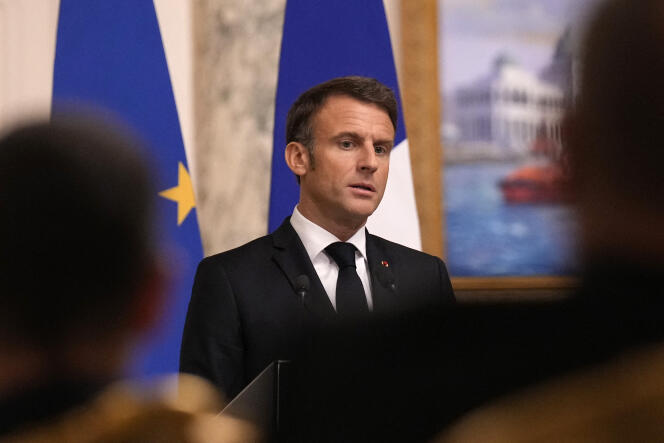


As Israel's retaliation against Hamas intensifies in the Gaza Strip, the holding of a humanitarian conference to the benefit of the enclave's population at the Elysée Palace on Thursday, November 9, is a delicate gamble.
Organized in less than a week at President Emmanuel Macron's request, the meeting was based on a simple premise: "Mobilizing the international community in order to obtain tangible results and respond to the most urgent needs," said the French leader on Wednesday. But in the midst of war, just over a month after Hamas's terrorist attacks in Israel – which left 1,400 people dead and more than 240 taken as hostages, on October 7 – the initiative is raising many doubts.
On the eve of the conference, Macron and French officials had a hard time convincing the world of the merits of such an event, given Israel's refusal to accept any notion of a ceasefire, or even a humanitarian pause, to interrupt the fighting. In the Gaza Strip, more than 10,300 lives have been claimed, according to the Health Ministry in the Hamas-controlled enclave; "thousands," according to the Pentagon.
"The fight against Hamas must respect international humanitarian law and the protection of the civilian population," said one of the president's advisers, acknowledging that "today, there are too many civilian victims" in Palestine. But the Elysée is careful not to call for a ceasefire, in the name of Israel's right to defend itself. This position has provoked an outcry in Arab capitals, and some French officials even feared a boycott of the conference.
Against this tense backdrop, the list of some 80 participating countries and organizations was not unveiled until late Wednesday afternoon. The prime minister of the Palestinian Authority, Mohammad Shtayyeh, is expected to attend, rather than Mahmoud Abbas, its president. No regional heads of state will be making the trip, on the eve of an Arab League summit in Saudi Arabia. Israel has not been invited, but will be kept informed of the discussions, said French officials.
While the leaders of the European countries most sympathetic to the Palestinian cause – Ireland, Greece and Cyprus – will be in Paris, others, including Germany and Italy, will be represented at the ministerial or even diplomatic level. As for the United States, it is sending its under secretary for civilian security democracy and human rights, Uzra Zeya. NGOs including the International Committee of the Red Cross (ICRC), and multilateral agencies, such as the United Nations Relief and Works Agency for Palestine Refugees in the Near East (UNWRA), will also be present.
You have 45% of this article left to read. The rest is for subscribers only.
